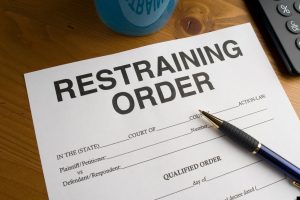A new Florida statute going into effect Oct. 1, 2024 will make it easier for law enforcement officers to verify whether you’re in violation of a Fort Lauderdale domestic violence restraining order. 
The new law allows recipients of Florida protection orders to carry a single, wallet-sized card, called “Hope Cards,” to prove the valid status of an active restraining order.
As our Broward criminal defense lawyers can explain, those who secure a domestic violence protection order in Florida are generally expected to carry a physical copy of that order around at all times in order to quickly demonstrate to law enforcement that validity of the order. Otherwise, the police have to spend some time combing through the system to find and verify it. The problem with this, according to many victims’ advocates, is that those orders can easily be 9-10 pages long. They aren’t convenient to tuck into a purse or pocket.
Having an electronic copy is better than nothing, but they don’t have the benefit of a seal of the clerk of the court. Police can’t make an arrest for violating an order until they first verify that the order exists and is current.
Enter the Hope Cards.
What Hope Cards Will Mean in Florida Protection Order Violation Cases
They’re wallet-sized cards that are issued by the Clerk of Courts. More durable and convenient than keeping the whole order on hand.
Florida isn’t the first state to do this. Montana was the first. Half a dozen others followed. The cards cost about $40 each, but the state has received $705,000+ in funding to get it started. Grants and private donations may cover the rest.
As far as what this means for defendants accused of violating a domestic violence restraining order in Fort Lauderdale: Probably not much. Having that card on hand could result in faster turnaround on arrests. It could maybe result in more arrests and convictions if that faster turnaround means officers are able to follow up sooner and, in doing so, preserve certain evidence of relevance that they may not have otherwise. But that’s a lot of “ifs.”
 Fort Lauderdale Criminal Attorney Blog
Fort Lauderdale Criminal Attorney Blog




